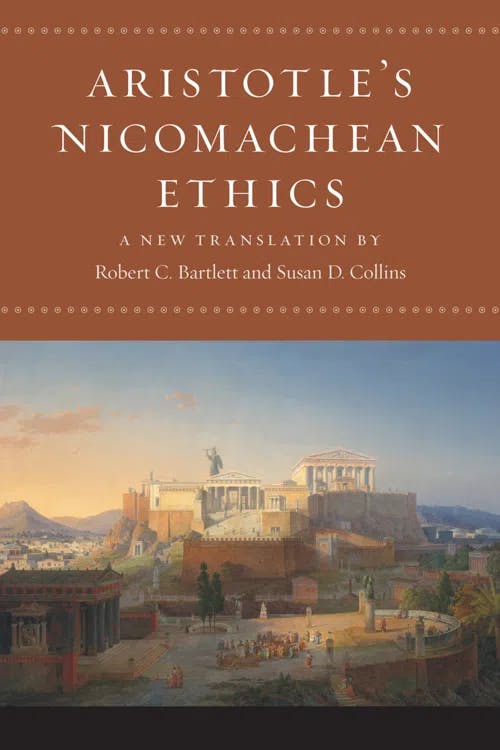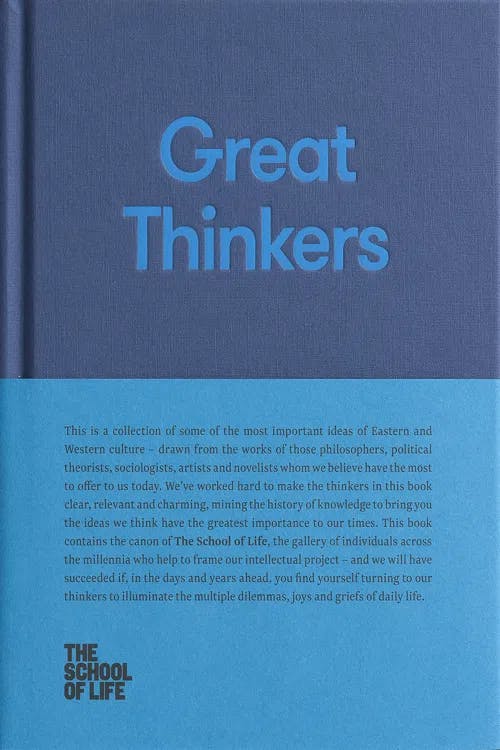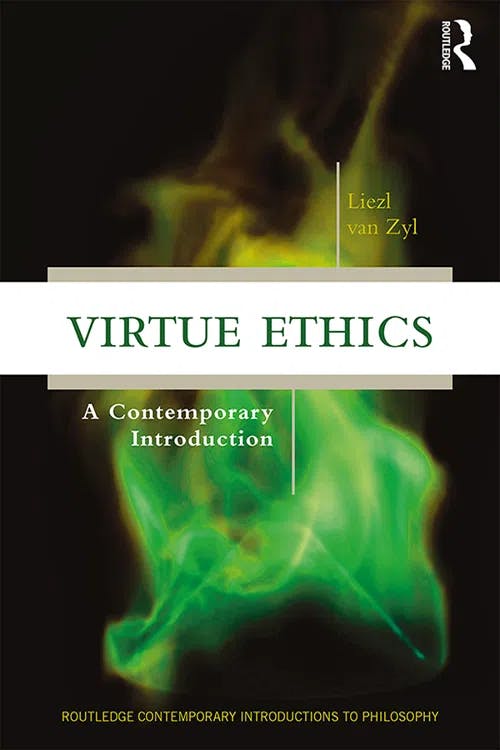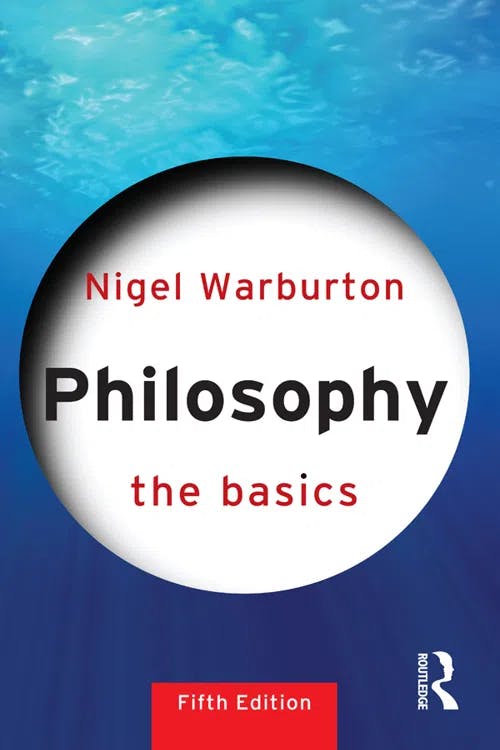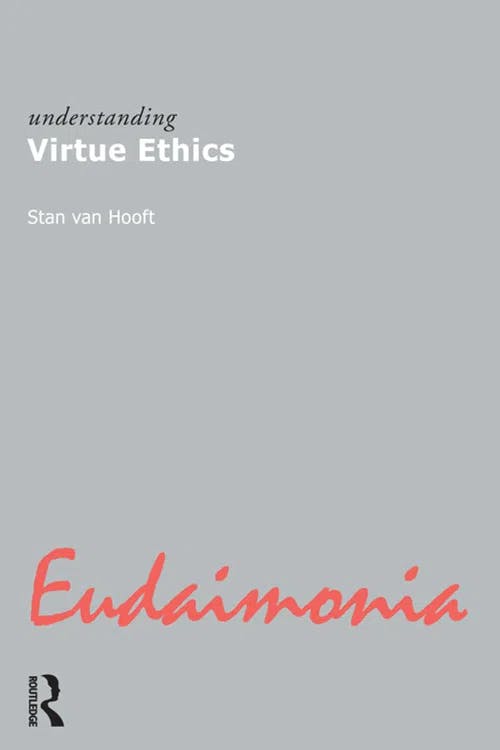What is Aristotle's Virtue Ethics?
MA, English Literature (University College London)
Date Published: 30.03.2023,
Last Updated: 24.01.2024
Share this article
Defining Aristotle’s virtue ethics
Aristotle (384–322 BCE) is one of the most influential philosophers in history, and he turned his gaze to a dizzying range of subjects: including metaphysics, politics, the arts, biology, and more.
When it comes to human behavior and morality, Aristotle is known for his “virtue ethics” — an ethical theory which primarily emphasizes the character of the moral agent themselves, rather than the morality of their actions (as with consequentialism) or the primacy of moral duty (as with deontology). All three major ethical theories still have place for “virtues, consequences, and rules”, as Rosalind Hursthouse and Glen Pettigrove argue, but “What distinguishes virtue ethics from consequentialism or deontology is the centrality of virtue within the theory” (“Virtue Ethics”, The Stanford Encyclopedia of Philosophy, 2022).
Aristotle is not the only virtue ethicist, but he remains the most influential — with a resurgent virtue ethicist movement still indebted to his work in the present day. But what, exactly, is Aristotle’s approach to virtue ethics?
Unpacking Aristotle’s virtue ethics
Aristotle’s formulation of virtue ethics arrives in the form of the Nicomachean Ethics (c. 340 BCE) — a book based on notes from his lectures and edited by his son. On the subject of the book’s somewhat curious name, Robert C. Bartlett and Susan D. Collins reveal:
Its title (which Aristotle himself never uses) is derived from the name that both Aristotle’s son and father bore, Nicomachus; the title may either refer to the former, perhaps as editor of the text, or pay homage to the latter: no one is certain. (2011)
Aristotle, Robert C. Bartlett, and Susan D. Collins
Its title (which Aristotle himself never uses) is derived from the name that both Aristotle’s son and father bore, Nicomachus; the title may either refer to the former, perhaps as editor of the text, or pay homage to the latter: no one is certain. (2011)
Whatever the history of its conception, the Nicomachean Ethics emerges as “a carefully organized and cohesive work” which is dedicated to Aristotle’s “philosophy of human affairs” (Bartlett and Collins, 2011). Aristotle’s aims in the Nicomachean Ethics are ambitious, as Alain de Botton’s The School of Life summarizes:
Aristotle set himself the task of identifying the factors that lead people to have a good life, or not. He suggested that good and successful people all possess distinct virtues, and proposed that we should get better at identifying what these are, so that we can nurture them in ourselves and honour them in others. (2020)
The School of Life
Aristotle set himself the task of identifying the factors that lead people to have a good life, or not. He suggested that good and successful people all possess distinct virtues, and proposed that we should get better at identifying what these are, so that we can nurture them in ourselves and honour them in others. (2020)
The achievement of a “good life” is Aristotle’s central goal here, and so he advances the cultivation of “virtues” as the means by which this can be achieved. Aristotle refers to this “good life” as eudaimonia — a crucial concept which underpins his ethical philosophy. Before we discuss the virtues themselves, then, let’s take a closer look at Aristotle’s concept of eudaimonia.
What is eudaimonia?
Eudaimonia is a Greek word with a nexus of possible translations; including happiness, human flourishing, and well-being. Or, as Nigel Warburton dryly puts it, eudaimonia is “pronounced ‘you-die-moania’, but meaning the opposite” (A Little History of Philosophy, 2011). Aristotle sees eudaimonia as “something complete and self-sufficient” which we “always choose [...] on account of itself and never on account of something else” (Nicomachean Ethics (c. 340 BCE [2011]). Eudaimonia is the be-all and end-all; the underlying motivation behind our actions, and the end goal of ethical philosophy.
By establishing eudaimonia as the foundation of his ethics, Aristotle takes his place in what Liezl van Zyl describes as the “eudaimonistic tradition”:
Eudaimonists take the starting point for ethical reflection to be: How can I live well? or: What is the best life for human beings? And their answer, in short, is: A good or happy life is a virtuous life. (2018)
Liezl van Zyl
Eudaimonists take the starting point for ethical reflection to be: How can I live well? or: What is the best life for human beings? And their answer, in short, is: A good or happy life is a virtuous life. (2018)
In some ways, then, Aristotle’s virtue ethics can be seen as a kind of self-help guide which helps us to live a virtuous life — and, in doing so, achieve eudaimonia.
What is virtue?
The question that naturally follows is: how, exactly, do we live a virtuous life? What is virtue, in Aristotle’s view? In Philosophy: The Basics (2013), Warburton provides a succinct summary of this thorny concept:
Aristotle claimed that cultivating the virtues is the way to flourish as a human being. But what is a virtue? It is a pattern of behaviour and feeling: a tendency to act, desire, and feel in particular ways in appropriate situations.
Nigel Warburton
Aristotle claimed that cultivating the virtues is the way to flourish as a human being. But what is a virtue? It is a pattern of behaviour and feeling: a tendency to act, desire, and feel in particular ways in appropriate situations.
Many of the virtues listed by Aristotle will be familiar to us, such as courage, temperance, and wisdom. But virtues are not just ideal traits — for Aristotle, they are linked to excellence of character in general. As van Lyzl argues,
What allows us to identify a trait as a virtue [...] is that it is necessary for human happiness. As such, a virtue is not simply a useful trait or one that we find attractive or agreeable in some way. Rather, virtue involves functioning well as an emotional, intelligent, and social being; more specifically, it involves having a correct understanding of what is important or worthwhile in life, acting for the right reasons and with the right attitude, and having the right emotional responses. A fully virtuous person is an excellent human being, someone who lives a good or happy life. (2018)
Virtue is an all-round excellence of character, and not just a habit to be automatically performed or an ideal to be blindly followed. As van Lyzl explains above, a virtuous character is necessary for a virtuous life — and, by extension, a happy life.
For Aristotle, happiness and virtue are inextricably linked — in his own words, he describes “happiness” as “a certain activity of soul in accord with complete virtue” (c. 340 BCE [2011]). Bartlett and Collins are helpful here when it comes to detangling Aristotle’s logic:
For Aristotle, then, the question of how to be happy is the question of how to live well as a human being, and living well is inseparable from attaining the virtue or virtues that make possible the best activity. (2011)
To sum up Aristotle’s conception of virtue ethics so far, then: in order to achieve eudaimonia, we must cultivate a character of excellent virtue and live a virtuous life. But this is not quite the whole picture. Aristotle believes that, in the course of living this virtuous life, it is also necessary (for human happiness) to exercise human reason and rationality as much as possible.
The need for reason
In order to understand the importance Aristotle places on human reason, it’s helpful to consider Aristotle’s starting point: the belief that everything has a function, or purpose, and that the exercise of this function leads to happiness. What separates humans from other animals, in Aristotle’s view, is our capacity for reason — and so it must therefore be our function to use these powers of reasoning as much as possible. As Richard Kraut explains,
The good of a human being must have something to do with being human; and what sets humanity off from other species, giving us the potential to live a better life, is our capacity to guide ourselves by using reason. If we use reason well, we live well as human beings [...]. Doing anything well requires virtue or excellence, and therefore living well consists in activities caused by the rational soul in accordance with virtue or excellence. ("Aristotle’s Ethics", The Stanford Encyclopedia of Philosophy, 2022)
Aristotle claims that “the work of a human being is an activity of soul in accord with reason”, and that it is important to pursue these rational activities “well and nobly”, as they are “brought to completion well in accord with the virtue proper to it” (c. 340 BCE [2011]). In other words, a life of rational and virtuous activity is necessary for human happiness.
Rationality is also necessary for a virtuous life in the first place. It is not enough to blindly follow a list of virtues, as this would not constitute truly virtuous action. A virtue is not “an unthinking habit”, but “an intelligent judgement about the appropriate response to the situation you are in” (Warburton, 2013). Aristotle believes that we must use our human reason to apply the virtues judiciously — depending on each individual circumstance. Aristotle calls this phronesis — understood in English as “prudence” or “practical wisdom” — and it’s an integral part of his virtue ethics as a whole. Stan van Hooft argues:
Wisdom is an important intellectual virtue, but the most important of all is practical wisdom (phronëis) because it allows us to judge rightly what a situation calls for from us and to do it. (2014)
Stan van Hooft
Wisdom is an important intellectual virtue, but the most important of all is practical wisdom (phronëis) because it allows us to judge rightly what a situation calls for from us and to do it. (2014)
Without practical wisdom, it is not possible to apply the other virtues in practice. Therefore, without practical wisdom, it is impossible to live a virtuous and happy life at all. Through practical wisdom, for example, we are able to express the virtue of courage with the right degree of balance and moderation — depending on the specific circumstances, and without being too cowardly or too rash. This is where we reach one of the most well-known aspects of Aristotle’s virtue ethics: the doctrine of the mean, which is also referred to as the golden mean.
What is the golden mean?
The golden mean refers to the moral virtue which lies between two related vices of excess and deficiency. Aristotle writes,
There are, then, three dispositions, two of them vices—one relating to an excess, the other to a deficiency—and one of them a virtue, namely, the mean. (c. 340 BCE [2011])
Aristotle, Robert C. Bartlett, and Susan D. Collins
There are, then, three dispositions, two of them vices—one relating to an excess, the other to a deficiency—and one of them a virtue, namely, the mean. (c. 340 BCE [2011])
For Aristotle, courage is the virtue which lies between the vices of cowardice and recklessness, just as temperance is the virtue between insensibility and self-indulgence:
he who avoids and fears all things and endures nothing becomes a coward, and he who generally fears nothing but advances toward all things becomes reckless. Similarly, he who enjoys every pleasure and abstains from none becomes licentious; but he who avoids every pleasure, as the boorish do, is a sort of "insensible" person. Moderation and courage are indeed destroyed by excess and deficiency, but they are preserved by the mean. (c. 340 BCE [2011])
A coward exhibits a deficiency of courage, while a reckless person exhibits an excess of courage. Practical wisdom is necessary for identifying the golden mean in the middle — the area in which each respective virtue resides, along this spectrum of excess and deficiency. Aristotle explains that virtue is “a characteristic defined by reason and as the prudent person would define it” (c. 340 BCE [2011]).
Aristotle’s virtue ethics: in summary
In summary, then, Aristotle’s virtue ethics can be (very simply) broken down in the following way:
- The foundational goal of Aristotle’s virtue ethics is to help us achieve eudaimonia; happiness, or a good life.
- In order to do so, we must cultivate virtuous characters and live virtuous lives.
- We must also use reason, as it is the function of humans to do so. Practical wisdom is also necessary for applying the virtues throughout our lives.
- Virtues can be found on a spectrum between two vices. The virtue lies in the middle, as the so-called golden mean.
As van Hooft observes,
Aristotle’s understanding of ‘ethics’ has more to do with what makes life worth living than with obedience to the moral law. Given that human beings have purposes built into their very mode of being, virtue is whatever helps us achieve those purposes. (2014)
With his virtue ethics, Aristotle does not set out to create a binding moral rulebook for society to follow. Instead, we are encouraged to fulfill our purpose and achieve eudaimonia. “The goal of virtue is to be happy in Aristotle’s special sense of that term”, van Hooft argues, and — crucially — “You cannot be happy without being good” (2014). This last point is key, as contemporary Aristotelian virtue ethicists would argue that society as a whole benefits from individual lives of virtuous (and therefore good) action.
The legacy of Aristotle’s virtue ethics
Just as with his wider philosophical ideas, Aristotle’s formulation of virtue ethics has had a formative influence on Western thought. When considering virtue ethics as a whole, Hursthouse and Pettigrove claim:
It persisted as the dominant approach in Western moral philosophy until at least the Enlightenment, suffered a momentary eclipse during the nineteenth century, but re-emerged in Anglo-American philosophy in the late 1950s. (“Virtue Ethics”, The Stanford Encyclopedia of Philosophy, 2022)
Virtue ethics has experienced a modern revival, taking its place alongside consequentialism and deontology as one of the three main theories in the field of normative ethics. Even in its divergent modern forms, Hursthouse and Pettigrove find clear traces of Aristotle’s influence:
Although modern virtue ethics does not have to take a ‘neo-Aristotelian’ or eudaimonist form [...] almost any modern version still shows that its roots are in ancient Greek philosophy by the employment of three concepts derived from it. These are arête (excellence or virtue), phronesis (practical or moral wisdom) and eudaimonia (usually translated as happiness or flourishing). (2022)
Modern virtue ethicists remain attracted to the foundational principle that eudaimonia is a worthy goal in life, and that virtue will help us attain it. As Warburton summarizes,
Many modern philosophers believe that he [Aristotle] was right about the importance of developing the virtues, and that his view of what happiness is was accurate and inspiring. Instead of looking to increase our pleasure in life, they think, we should try to become better people and do the right thing. That is what makes a life go well. (2011)
Many other philosophers, of course, would disagree with modern virtue ethicists. To read about divergent ethical theories in more depth, you can explore the ethics and moral philosophy section of Perlego’s library.
Further reading on Perlego
Alfano, M. (2015) Current Controversies in Virtue Theory. Taylor and Francis. Available at: https://www.perlego.com/book/1560674/current-controversies-in-virtue-theory-pdf
Besser-Jones, L. and Slote, M. (eds.) (2015) The Routledge Companion to Virtue Ethics. Taylor and Francis. Available at: https://www.perlego.com/book/1626076/the-routledge-companion-to-virtue-ethics-pdf
Devettere, R. (2002) Introduction to Virtue Ethics. Georgetown University Press. Available at: https://www.perlego.com/book/949625/introduction-to-virtue-ethics-insights-of-the-ancient-greeks-pdf
Harrison, T. and Walker, D. I. (eds.) (2018) The Theory and Practice of Virtue Education. Taylor and Francis. Available at: https://www.perlego.com/book/1381188/the-theory-and-practice-of-virtue-education-pdf
Hughes, G. (2013) The Routledge Guidebook to Aristotle’s Nicomachean Ethics. Taylor and Francis. Available at: https://www.perlego.com/book/1624837/the-routledge-guidebook-to-aristotles-nicomachean-ethics-pdf
Kraut, R. (ed.) (2008) The Blackwell Guide to Aristotle’s Nicomachean Ethics. Wiley. Available at: https://www.perlego.com/book/2777650/the-blackwell-guide-to-aristotles-nicomachean-ethics-pdf
May, H. (2010) Aristotle’s Ethics. Bloomsbury Publishing. Available at: https://www.perlego.com/book/805245/aristotles-ethics-moral-development-and-human-nature-pdf .
Singer, P. (2013) A Companion to Ethics. Wiley. Available at: https://www.perlego.com/book/1007291/a-companion-to-ethics-pdf
Aristotle’s virtue ethics FAQs
What is Aristotle’s virtue ethics in simple terms?
What is Aristotle’s virtue ethics in simple terms?
Who is Aristotle?
Who is Aristotle?
What are the best books on virtue ethics?
What are the best books on virtue ethics?
Bibliography
Aristotle (2011) Aristotle’s Nicomachean Ethics. The University of Chicago Press. Available at: https://www.perlego.com/book/1834173/aristotles-nicomachean-ethics-pdf
de Botton, A. (ed.) (2020) Great Thinkers. The School of Life. Available at: https://www.perlego.com/book/1637102/great-thinkers-simple-tools-from-sixty-great-thinkers-to-improve-your-life-today-pdf
Hursthouse, R. and Pettigrove, G. (2022) "Virtue Ethics", The Stanford Encyclopedia of Philosophy. Winter 2022 Edition. Available at: https://plato.stanford.edu/archives/win2022/entries/ethics-virtue/
Kraut, R. (2022) "Aristotle’s Ethics", The Stanford Encyclopedia of Philosophy. Fall 2022 Edition. Available at: https://plato.stanford.edu/archives/fall2022/entries/aristotle-ethics/
Ross, D. (2004) Aristotle. 6th edn. Taylor and Francis. Available at: https://www.perlego.com/book/1617972/aristotle-pdf
Shields, C. (2022) "Aristotle", The Stanford Encyclopedia of Philosophy. Spring 2022 Edition. Available at: https://plato.stanford.edu/archives/spr2022/entries/aristotle/
van Hooft, S. (2014) Understanding Virtue Ethics. Taylor and Francis. Available at: https://www.perlego.com/book/1558497/understanding-virtue-ethics-pdf
van Zyl, L. (2018) Virtue Ethics. Taylor and Francis. Available at: https://www.perlego.com/book/1617824/virtue-ethics-a-contemporary-introduction-pdf
Warburton, N. (2011) A Little History of Philosophy. Yale University Press.
Warburton, N. (2013) Philosophy: The Basics. 5th edn. Taylor and Francis. Available at: https://www.perlego.com/book/1508905/philosophy-the-basics-pdf
Warburton, N. (2014) Philosophy: The Classics. 4th edn. Taylor and Francis. Available at: https://www.perlego.com/book/1557108/philosophy-the-classics-pdf
MA, English Literature (University College London)
Andy Cain has an MA in English Literature from University College London, and a BA in English and Creative Writing from Royal Holloway, University of London. His particular research interests include science fiction, fantasy, and the philosophy of art. For his MA dissertation, he explored the presence of the sublime in Shakespeare’s plays.

